Musicals aren’t always taken seriously in the art world – but they’re a serious business.
Broadway shows alone are estimated to have had combined revenues of around $1.5 billion last year.
The West End is said to contribute around £900m to the London economy each year too.
And while they are the epicentres of the global musical and theatre industry, they actually only represent a piece of the revenue for the sector.
That’s not just because of the many, smaller productions that do very well for themselves in other parts of the world – but also because of the countless touring companies that bring big hits to many cities (including Dublin).
Because, if you do get a big hit, you can travel around the world - packing out theatres week in and week out.
And you can potentially do that for years.
The Book of Mormon debuted 13 years ago, but it’s still on Broadway, and is playing on the West End. Its touring company is coming back to Dublin soon, too.
So it’s still bringing in plenty of money for Trey Parker and Matt Stone.
The Phantom of the Opera opened in London 38 years ago– and you can still go and see that on the West End today.
So are they a wise investment?
We need your consent to load this rte-player contentWe use rte-player to manage extra content that can set cookies on your device and collect data about your activity. Please review their details and accept them to load the content.Manage Preferences
Not if you’re a cautious investor – in fact it’s a very risky venture. It’s estimated that around 80% of Broadway shows are a commercial flop.
It is important to note that a musical is deemed a commercial flop is when a show fails to make back its initial investment.
It can only do that when it is taking in more than its running costs each week – which would include the cost of renting the theatre, paying the actors, musicians and technical staff, and marketing the show.
That can run to hundreds of thousands of dollars a week.
As a result you can have shows that run for years - and are a critical hit - but they end as a commercial failure because they were only making enough money to just about cover their weekly running costs.
Given that the initial investment could be somewhere in the region of $20m, even a solid earner will take time to earn its way out of 'flop’ territory.
That initial investment cost can be lower, of course, but it can be higher too.
That’s because putting a show together takes time.
Writing a script, music and songs is a major under-taking – then the right cast needs to be found.
After that a show is often trialled ‘out of town’ – maybe in a smaller, off-Broadway theatre in New York, or in a different city altogether. This allows producers to hone the show and iron out the kinks.
Once that’s done, the team need to rent their theatre and build a set – that paves the way for Broadway previews (which is kind of like a soft-launch to finalise the show before its debut proper).
That means a lot of time and money is spent before a ticket is even sold – and the truth is no-one knows what’s going to be a hit.
There have been lots of what would have be presumed to be guaranteed hits that ended up flopping – Stephen Sondheim’s Merrily We Roll Along is a classic example.
And then there are shows that seem, on paper, like a terrible idea – but they end up being a huge hit.
Like what?
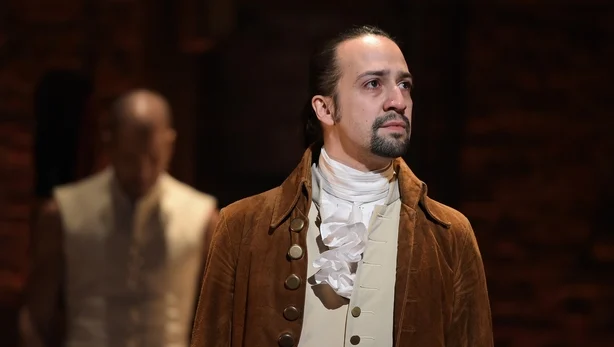
Hamilton is probably the best example.
Lin Manuel Miranda had had a big Broadway success with In The Heights, but he still wasn’t exactly the musical royalty that he is today when he first started pitching the show.
So, when investors first heard talk of a hip hop musical based on the life of America’s first secretary of the treasury – they’d have been forgiven for raising an eyebrow.
Whatever the initial reaction it didn’t seem to discourage him – and Manuel Miranda spent six years building on that idea.
His performances of some of the songs only helped to build buzz during that time.
It meant that, by the time it debuted off Broadway in early 2015, demand was huge.
It made it to Broadway in the August of that year and was an instant smash hit, with some people waiting days in line to get tickets.
It then swept the board at the 2016 Tonys, which pretty much cemented its success.
Its continued success since then has seen it make almost $1 billion on Broadway alone in the past nine years.
That wouldn’t include the money it’s made from touring the world – including its current stint in Dublin.
Nor would it include the money it made from the performance that was filmed for Disney+, or the money from the sale and streaming of the show’s album.
Manuel Miranda has a 3% royalty on each performance of Hamilton – so he’s done very well on the back of this performance.
And, of course, the success has helped him to bag major projects with Disney and Netflix, and helped to fast-track a film version of In The Heights too.
What other musicals were unlikely hits?
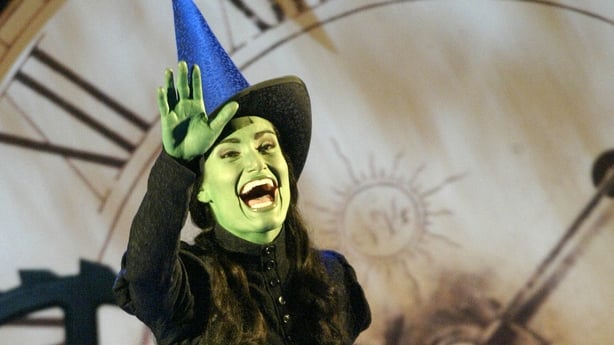
Wicked is based on a 1995 book by Gregory Maguire, who until then had largely been a children’s writer.
It was a revisionist prequal to The Wizard of Oz – and it wasn’t particularly successful at the time of its release.
But one person who did read it early on was Stephen Schwartz, who was just coming from working on songs for Disney’s Pocahontas and The Hunchback of Notre Dame.
As well as getting Maguire’s blessing for a stage show, Schwartz also had to get Universal Studios on board – because they held the film rights to the book and were planning to make a live action movie first.
He managed that and the musical debuted in 2003. It’s been a huge hit ever since, going on multiple US tours, tours in Ireland and the UK, across Europe and the world.
It’s even been translated into Korean, Dutch and Spanish.
The Broadway run has earned more than $1.6 billion so far – globally it’s made somewhere in the region of $3.5 billion.
And, if the films are a success, it will probably give the live show a new lease of life – not that it seems to need one.
Is that the most successful musical ever?
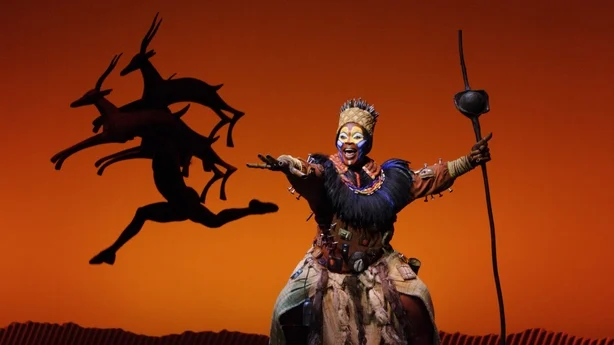
No – not even close.
Just like in movies, it’s Disney that dominates the Broadway box office.
Its musical version of The Lion King is the biggest earning musical, both in the US and the world.
It’s even beaten out Phantom, which had a more than 10 year head start on them.
The Lion King debuted on Broadway in 1997, just three years after the film that it’s based on came out. (The film was loosely based on Hamlet – so really we have Shakespeare to thank for all of this).
It is Broadway’s third longest running show – but has also had a West End production since 1999, and has done multiple tours around the UK – coming to Ireland multiple times as well – with shows also running across Europe, Asia and Africa.
All in all it’s made more than $2 billion on Broadway, and more than $8.2 billion globally.
If that’s the biggest hit – what’s the biggest failure?
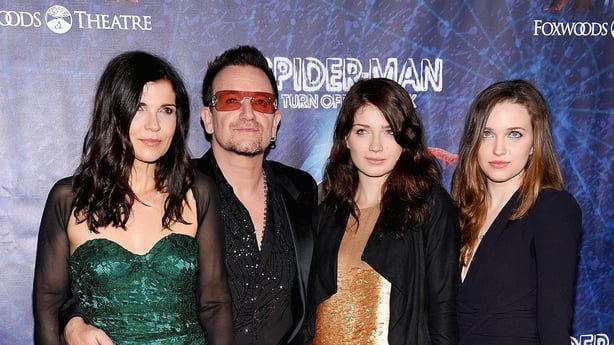
There’s one show that’s generally agreed to be the biggest Broadway flop – and it has a few familiar names attached.
This was a musical based on the superhero Spider-man – called Spider-Man: Turn off the Dark.
It was first announced in 2002, on the back of the first Tobey Maguire Spider-Man film, which was a massive hit that helped to revive the entire superhero movie industry that had been destroyed by Joel Schumacher’s take on Batman.
Bono and The Edge were tasked with writing the music for the show - but it took years to get off the ground.
Readings for the show only began in 2007, and it still wasn’t on stage two years after that.
Despite that, it still had a budget of $52m by that time.
Part of the reason for that was because of the elaborate set they built for the show – which involved lots of big screens, and rigging for multiple aerial acts which allowed Spider-Man to swing over the audience.
That set is also part of the reason why the producers couldn’t do out-of-town shows as part of their preparations.
And all of those bells and whistles meant the weekly running costs were huge too – which made it even harder to get a return on investment.
Previews eventually started in November 2010 – eight years after the musical was first announced - and the plan was to open before Christmas.
But problems kept cropping up – including injuries to actors, and some of the main cast leaving to pursue other projects.
That saw the premiere date slip repeatedly.
Ultimately, it was July 2011 before the show officially debuted.
By this stage its budget had risen to $75m – and the running costs were $1.3m a week.
And despite all of the problems, it actually did relatively well (initially, at least), turning a profit in its early months. It even broke a record for weekly revenue in early 2012.
But given the size of its budget, it would have taken years for it to return its initial investment – and it just couldn’t sustain interest for long enough to do that.
The Broadway show closed in January 2014. There was talks of it being moved to Las Vegas, but that never happened.
In the end it’s said to have lost $60m.
There’s another Broadway flop with an Irish link, isn’t there?
Yes – and this is a good example of how a show might have all the right elements for success, but failed nonetheless.
The Pirate Queen was a musical based on the life of Gráinne Mhaol, or Grace O’Malley as she was known in this.
Irish people already know that there are lots of interesting things about her that would work well on the stage or screen – but that wouldn’t have been as obvious to an American audience.
What would have made it attractive to Broadway investors, though, was the fact that it was being made by Alail Boulblil and Claude-Michel Schönberg, who were the musical team behind the stage shows of Les Misérables and Miss Saigon.
In other words, Broadway legends.
And they teamed up with Moya Doherty and John McColgan, who of course had a global smash-hit with Riverdance.
The Pirate Queen opened in Broadway in April 2007 – but it got fairly lukewarm reviews from the press.
It also didn’t pick up any Tony nominations, which meant it wasn’t able to ride the wave of awards buzz, which can often save a struggling show.
In the end it didn’t last very long – closing in June of the same year, with a reported $18 million loss.
What about the Lord of the Rings musical?
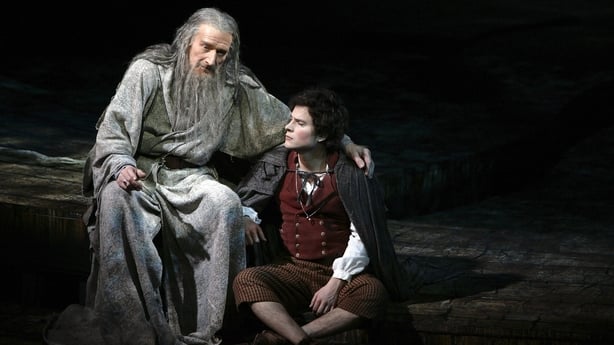
This is one that probably seemed like a bad idea at the time – and turned out to be exactly that.
The Lord of the Rings trilogy came out between 2001 and 2003 and were of course massive box office and critical hits, earning close to $3 billion globally.
Clearly wanting to ride that wave, a musical version was created, which tried to condense the three books down into one three and a half hour show.
It debuted in Toronto before moving to the West End in the summer of 2007 – and it lasted just over a year before it was shut down.
There are lots of reasons why this failed – hardcore Tolkien fans probably turned their nose up at the idea of a musical, while the general theatre goer probably saw it as too niche for them.
But the success of the films was probably a hindrance more than a help too – because the films are so beloved that any other take at the world is seen as inferior.
That’s even true of the Hobbit films, and the Rings of Power series Amazon has pumped billions into.
And another problem was that the Howard Shore score for the films is now so closely linked to the story in the minds of fans – and yet this musical could not use any of that.
Instead you had a Lord of the Rings musical with unfamiliar music.
Compare it to The Lion King – which used the well-known Elton John songs as the foundation for the stage version.
But clearly Broadway is looking closely at Hollywood in the hunt for success....are musicals-based-on-movies a relatively new thing?
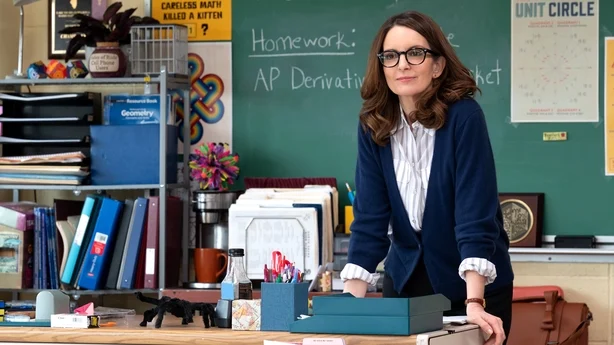
Not really – there have been attempts to turn movies into musicals for decades – like Breakfast at Tiffanys, which was a musical flop way back in the mid-1960s.
Although it could be argued that it (like the film) were actually adaptations of a book – which has also been a common source of material for musicals through the decades.
But musicals based on movies have definitely become more common in recent years – in part because of the cost and risks of a production.
If you can start with a well-known piece of content – like a popular film – it increases the likelihood that an audience will pay attention.
And it’s not cheap for a consumer to go to a show, especially a family, so people are probably more likely to part with their cash if it’s based on something they know and like.
And you can see that in Broadway and the West End right now – alongside Hamilton and Phantom you also have musical versions of Frozen, Mrs Doubtfire, Clueless, Back to the Future, The Notebook and, of course, The Lion King.
And now you even have some movies that become musicals, and then the musicals become movies…
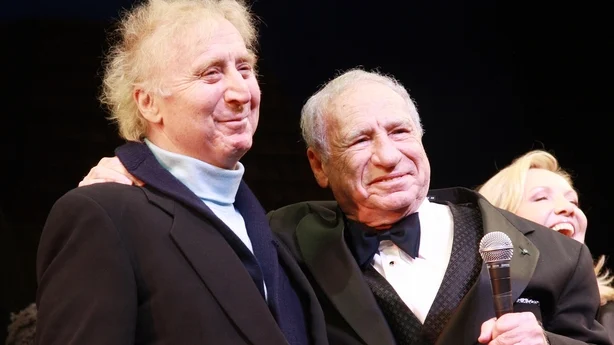
Yes this has happened a few times now – most recently with Tina Fey’s Mean Girls.
The high school comedy hit cinemas in 2004 and then got converted into a musical in 2017.
It proved to be a big hit – so much so that the musical version was itself made into a film which came out this year.
The same kind of thing happened with Jon Waters’ Hairspray.
It was originally a film in 1988, then it was made into a musical stage show in 2002, and that prompted the creation of the 2007 musical film.
But perhaps the most meta of all is The Producers.
Mel Brooks’ film came out in 1967 – and it was about a washed up Broadway producer and his accountant’s attempts to scam investors by purposely creating a musical flop.
The film was itself a commercial flop, but went onto become a cult classic.
Then, in 2001, it was turned into an actual Broadway show in its own right - originally starring Nathan Lane and Mathew Broderick.
And those actors reprised their roles four years later for a film remake – meaning they starred in the movie version of a Broadway show that was based on a movie about a Broadway show.
Disclaimer: The copyright of this article belongs to the original author. Reposting this article is solely for the purpose of information dissemination and does not constitute any investment advice. If there is any infringement, please contact us immediately. We will make corrections or deletions as necessary. Thank you.






